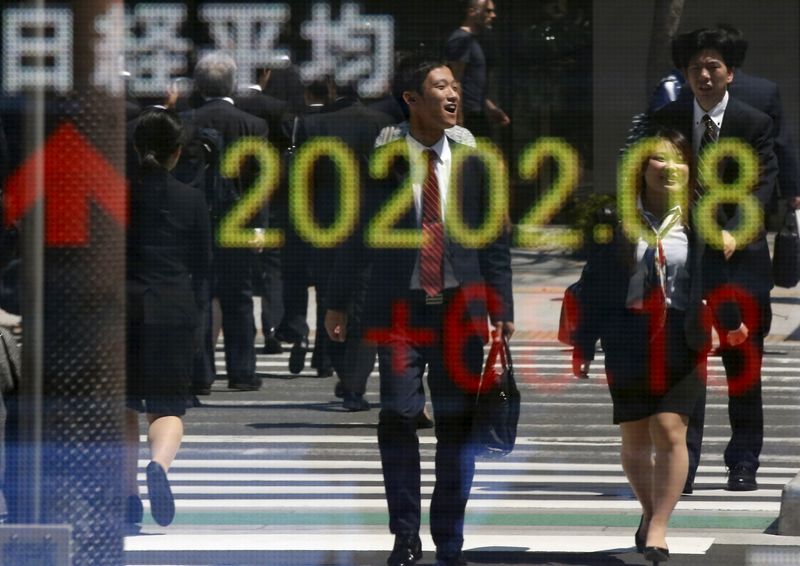Investing.com - Asian markets fell in morning trade on Tuesday amid geopolitical risks in the Middle East.
China’s Shanghai Composite and the Shenzhen Component were down 0.8% and 0.7% respectively by 10:30 PM ET (02:30 GMT). Hong Kong’s Hang Seng Index dropped 0.8%.
On the Sino-U.S. trade front, China’s Commerce Ministry said today that Vice Finance Minister Liao Min will lead a delegation to visit the U.S. later this week for trade discussions.
Meanwhile, U.S. President Donald Trump said in a note to Congress on Monday that Washington has reached an initial trade accord with Japan over tariffs.
The U.S. will also enter an “executive agreement” with Japan over digital trade, the president added. It is unclear if the U.S. will maintain tariffs on Japanese auto imports as part of the agreement, however.
“My administration looks forward to continued collaboration with the Congress on further negotiations with Japan to achieve a comprehensive trade agreement that results in more fair and reciprocal trade between the United States and Japan,” Trump said in the statement released by the White House via email.
Japan’s Nikkei 225 slipped 0.1%. The Bank of Japan monetary policy is due on Thursday.
Elsewhere, South Korea’s KOSPI was little changed at 2,062.99.
Down under, Australia’s ASX 200 slipped 0.1%.
Reports on Monday suggested that Saudi Aramco, the state oil giant, will need weeks or months before they will be able to restore the majority of output following a drone attack on Saudi Arabia’s oil facilities over the weekend.
The developments in the Middle East added a fresh headwind for the global economy. Overnight, U.S. stocks closed lower, with the S&P down 0.3%, the Dow dropped 0.5%, and the Nasdaq fell 0.3%. Markets in Germany, France, India and Brazil also fell yesterday.
Saudi Arabia produces roughly 10% of the world’s crude oil.
The U.S. Federal Reserve policy meeting and Fed Chairman Jerome Powell’s post-decision press conference on Wednesday will be in focus, as the central bank is widely expected to lower interest rates amid slowing economic growth.
